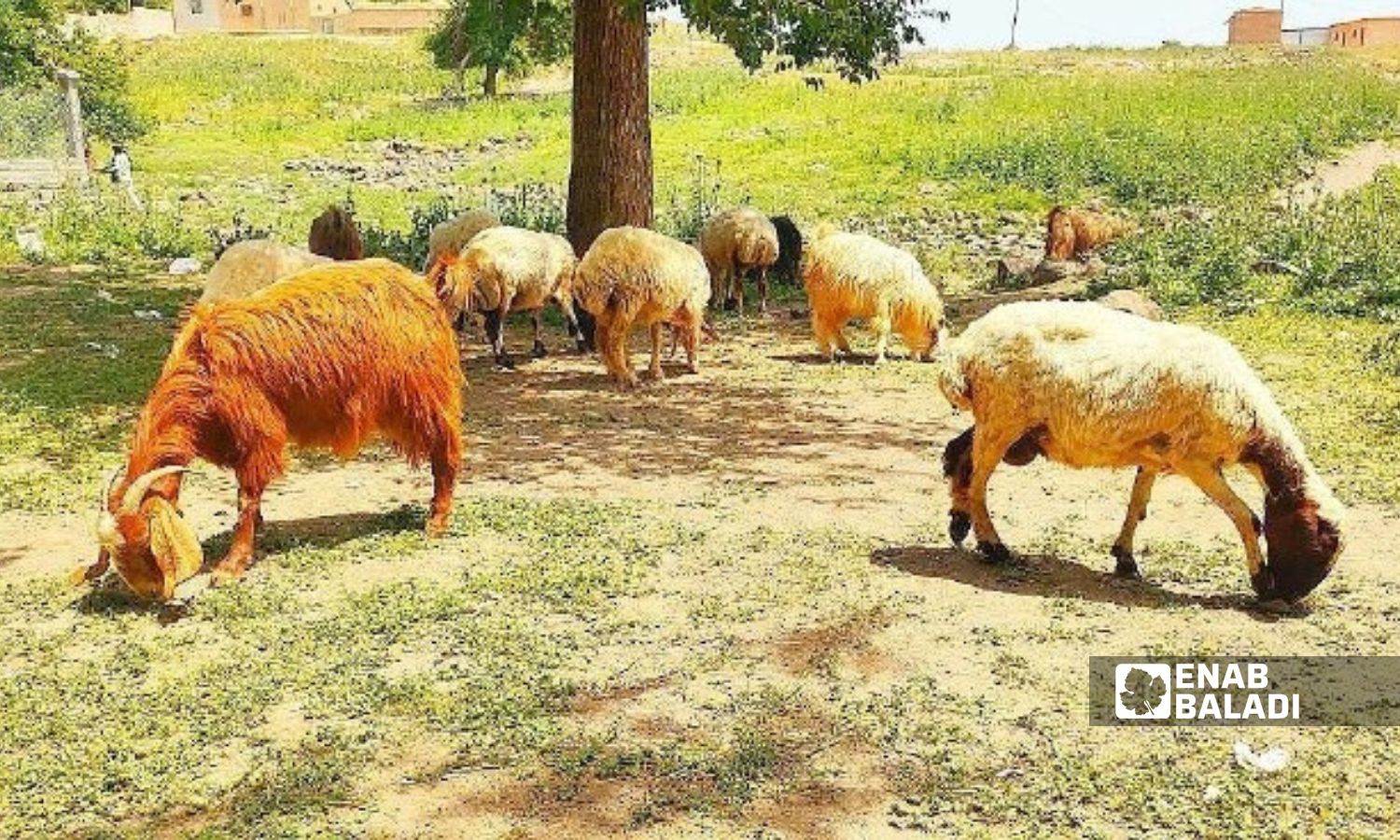



The livestock markets in al-Hasakah province are witnessing a noticeable increase in prices for various types of livestock, especially sheep, which is met by a “good” sales and purchase activity, according to several local sources speaking to Enab Baladi.
The good sales momentum and the rising livestock prices have reflected on the meat prices in the local markets, amid talks about the price hike being due to the increase in exports from northeastern Syria to Iraqi Kurdistan.
The Syrian Jazira region experienced heavy rainfall during the current winter season, which has led to the lush growth of natural pastures and has provided vast areas of grazing land.
Mohammed al-Rashid (48 years old) from the southern countryside of Qamishli, a sheep breeder, says that the abundance of pastures has helped in raising sheep better as breeders did not have to buy large quantities of feed, reducing breeding costs and increasing interest in their raising.
Al-Rashid added that the availability of green pastures contributed to improving the health of sheep and increasing their weight, which led to a rise in demand from merchants and consumers, indicating that most breeders achieved “good” profits from the selling and buying activity that clearly picked up lately.
Enab Baladi conducted a tour in the feed market in the city of Qamishli and observed feed prices, where the price of barley reached 2,600 Syrian pounds per kilogram, bread 2,000 pounds, bran 2,100 pounds, and straw 450 pounds (with the dollar equivalent to 15,000 pounds).
Khaled al-Dahwi (55 years old), a sheep breeder from the countryside of Tal Hamis, prefers to wait before selling until Ramadan to maximize profits and compensate for his previous losses, as he told Enab Baladi.
The breeder added that market activity is good, prices are continually rising, and with the arrival of Ramadan, the local market consumption of meat increases.
Many people tend to eat more meat during Ramadan, so preparing special dishes for the month of Ramadan and collective iftar feasts, as well as donating meat to the poor, contributes to an increased demand for meat.
Saher al-Hamid (40 years old) from Tal Brak, who works in the Hadadiya livestock market and other local markets, spoke to Enab Baladi about the latest livestock prices.
The sale price for weanlings (less than one year old) is about three million Syrian pounds, and the price of a ram ranges between four and nine million pounds, depending on the weight and age of the ram.
The selling price of an ewe (one year old and not yet pregnant) reaches three million Syrian pounds, and the selling price of a sheep is about four million and 500 thousand pounds, while a cow, if in good condition (fleshy), sells for about 25 million pounds.
The rise in livestock prices has led to an increase in meat prices in the local market, where the price of one kilogram of meat is about 160 thousand Syrian pounds. As Enab Baladi observed from butcher shop owners, the rising livestock prices forced them to raise their prices in order to cover costs and make profits.
The official in charge of the butchers’ committee in Qamishli affiliated with the Autonomous Administration in North and East Syria (AANES) said in a talk with Arta FM radio on February 25, that a kilogram of bone-in sheep meat is sold for a price ranging between 150 to 160 thousand pounds per kilogram, and a kilogram of pure meat at a price between 170 and 200 thousand Syrian pounds.
The official attributed the price increase to the decline in livestock numbers due to increased exports to Iraqi Kurdistan and the rising transportation costs from Manbij, al-Tabqa, and Raqqa to the Jazira region, according to him.
if you think the article contain wrong information or you have additional details Send Correction